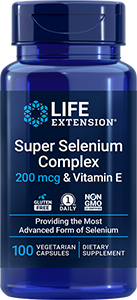
Newsletter
Newsletter
Consuming a Mediterranean diet associated with lower risk of sudden cardiac death during 9.8-year period

The July 6, 2021 issue of the Journal of the American Heart Association reported the finding of a trend toward a lower risk of sudden cardiac death in association with greater adherence to a Mediterranean diet during an average of 9.8 years of follow-up.* The study also uncovered a trend toward a higher risk of sudden cardiac death associated with greater intake of a Southern dietary pattern.
Sudden cardiac death, as defined by the National Heart, Lung, and Blood Institute-sponsored expert panel is “an unexpected death without obvious extracardiac cause, occurring with a rapid witnessed collapse, or if unwitnessed, occurring within one hour after the onset of symptoms.”
The current investigation included 21,069 participants in the Reasons for Geographic and Racial Differences in Stroke (REGARDS) study, which included men and women aged 45 years and older, among whom 42% were black. A high proportion of study participants resided in a region of the U.S. often referred to as the “stroke belt”. In previous research, five dietary patterns were derived from responses to dietary questionnaires administered upon enrollment in REGARDS. These included a pattern observed in the Southeastern United States that is characterized by added fats, fried food, eggs, organ meat, processed meat and sugar‐sweetened beverages. All subjects’ diets were subsequently scored for adherence to a Mediterranean diet, which included a high intake of vegetables, fruit, legumes, cereals and fish; a lower intake of meat and dairy products; a high ratio of monounsaturated fat to saturated fat consumption, and moderate alcohol intake. In-home examinations obtained physical measurements, information concerning medication use, a physical health summary, electrocardiographic evaluation, and blood and urine sample collection. Cardiovascular events and deaths were tracked via twice-yearly calls to participants or next of kin, and other methods.
During follow-up, 401 sudden cardiac deaths occurred. After adjustment for a number of factors, subjects whose Mediterranean diet scores placed them among the top one-third of participants had a risk of sudden cardiac death that was 26% lower than subjects whose scores were among the lowest third. The protective effect of the diet was limited to participants with no history of coronary heart disease at the beginning of the study.
Among men and women whose adherence to the Southern dietary pattern was among the top quarter of participants, the risk of sudden cardiac death was 46% higher than those among the lowest quarter.
“We know of no published studies investigating the possible associations of dietary patterns with risk of sudden cardiac death,” wrote authors James M. Shikany, DrPH, of the University of Alabama at Birmingham, and colleagues. However, they remarked that protective effects against the condition have been revealed in association with nuts and fish, which are Mediterranean diet components. They added that the omega 3 fatty acids in fatty fish have been proposed as responsible for the benefit observed in association with greater fish intake and may help protect against sudden cardiac death via their effects on resting heart rate, blood pressure, vascular endothelial function, triglyceride concentrations, inflammatory pathways and other factors. Furthermore, laboratory studies have revealed antiarrhythmic effects for omega 3s.
“Although observational in nature, these data suggest that diet may be a modifiable risk factor for sudden cardiac death and should be discussed with patients,” they wrote.
*Shikany JM et al. J Am Heart Assoc. 2021 Jul 6;10(13):e019158.
Products
Apply What You've Learned: The Mediterranean Diet
- Based on a review of the medical literature, a Mediterranean diet contains 3 to 9 servings of vegetables, 1/2 to 2 servings of fruit, 1-13 servings of cereals and up to 8 servings of olive oil daily. It provides about 37% of energy intake as total fat, consisting of 19% monounsaturated and 9% saturated fat. Fiber intake averages 31 grams per day.1 As you can see, a Mediterranean diet is plant-based without being low-fat.
- Eating the Mediterranean way emphasizes fish over red or processed meat as a quality protein source. Oily fish provide a significant amount of long-chain omega 3 polyunsaturated fatty acids, which have been associated with a lower risk of cardiovascular disease and other diseases when consumed in higher, rather than lower amounts.2 The American Heart Association recommends consuming two fish servings (particularly fatty fish) per week.3
- The high intake of extra virgin olive oil by people residing in the Mediterranean region has been suggested as one of the primary reasons behind the Mediterranean diet’s health-supportive effects. Extra-virgin olive oil can be used in salad dressings, drizzled on vegetables, or combined with fragrant herbs to use as a bread dip.
- A Mediterranean diet calls for a moderate intake of alcohol.1 This is often in the form of wine, which contains the beneficial flavonoids found in grapes. An average daily intake of approximately 350 mg of flavonoids is consumed by individuals following a Mediterranean diet.1 People who wish to avoid alcohol can include grapes or grape juice as part of their fruit intake or intake of grape extract.
Reference
- Davis C et al. Nutrients. 2015 Nov 5;7(11):9139-53.
- Shahidi F et al. Annu Rev Food Sci Technol. 2018 Mar 25;9:345-381.
- “Fish and Omega-3 Fatty Acids.” American Heart Association. Last Reviewed 2017 Mar 23. www.heart.org/en/healthy-living/healthy-eating/eat-smart/fats/fish-and-omega-3-fatty-acids
- Schwingshakl L et al. Lipids Health Dis. 2014 Oct 1;13:154.
- Mazzocchi A et al. Nutrients. 2019 Dec 3;11(12):2941.
Featured Life Extension Magazine® Article
The Anti-Aging Power of Hormone Therapy, by Dr. Thierry Hertoghe
Dr. Thierry Hertoghe, who is president of the International Hormone Society and the World Society of Anti-Aging Medicine, is one of the leading experts in hormone replacement therapy.
In his practice, based in Brussels, Belgium, fatigue, depression, low stress resistance and lack of a youthful appearance are some of the complaints voiced by patients with hormonal imbalances. Dr. Hertoghe evaluates patients’ blood and urine hormone levels to determine hormone excesses or deficiencies. Hormone imbalances are often associated with aging-related diseases; however, rather than treating these diseases, he focuses on correcting the imbalances that cause or aggravate them.
In addition to hormones that may be deficient, Dr. Hertoghe may also recommend intake of nutrients. “The most impressive advance in medicine in the next decades will come from a shift in focus from therapies that treat the consequences of disease to those that treat the causes,” Dr. Hertoghe stated. “Doctors and patients will pay greater attention to hormone and nutritional therapies and use pharmaceutical drugs as additions in areas where hormone and nutritional intake are not sufficient.”
What's Hot
Health Concern
Eye disease research reveals protective effect for Med diet against cognitive decline
Investigators from the National Eye Institute uncovered a lower risk of cognitive decline in association with adherence to a Mediterranean diet among participants in randomized trials designed to evaluate the effects of nutritional supplements on age-related macular degeneration.
Stroke
A stroke is the result of loss of blood flow, and subsequent oxygen, to part of the brain.
Related Life Extension Magazine® Articles

The Secret Behind the Mediterranean Diet’s Benefits
The high content of polyphenols in the Mediterranean diet is responsible for its ability to reduce all-cause mortality. A natural extraction process allows consumers to obtain high levels of polyphenols from Mediterranean food sources.

Olive Oil Prevents Blood Clots
Extra virgin olive oil inhibits abnormal platelet aggregation that underlies most heart attacks and ischemic strokes. Animal studies show that olive oil decreases atherosclerotic lesions, plaque size, and inflammatory responses.
Life Extension Magazine® Issue Now Online
A remarkable number of healthy-longevity findings have been published over the past 18 months.





